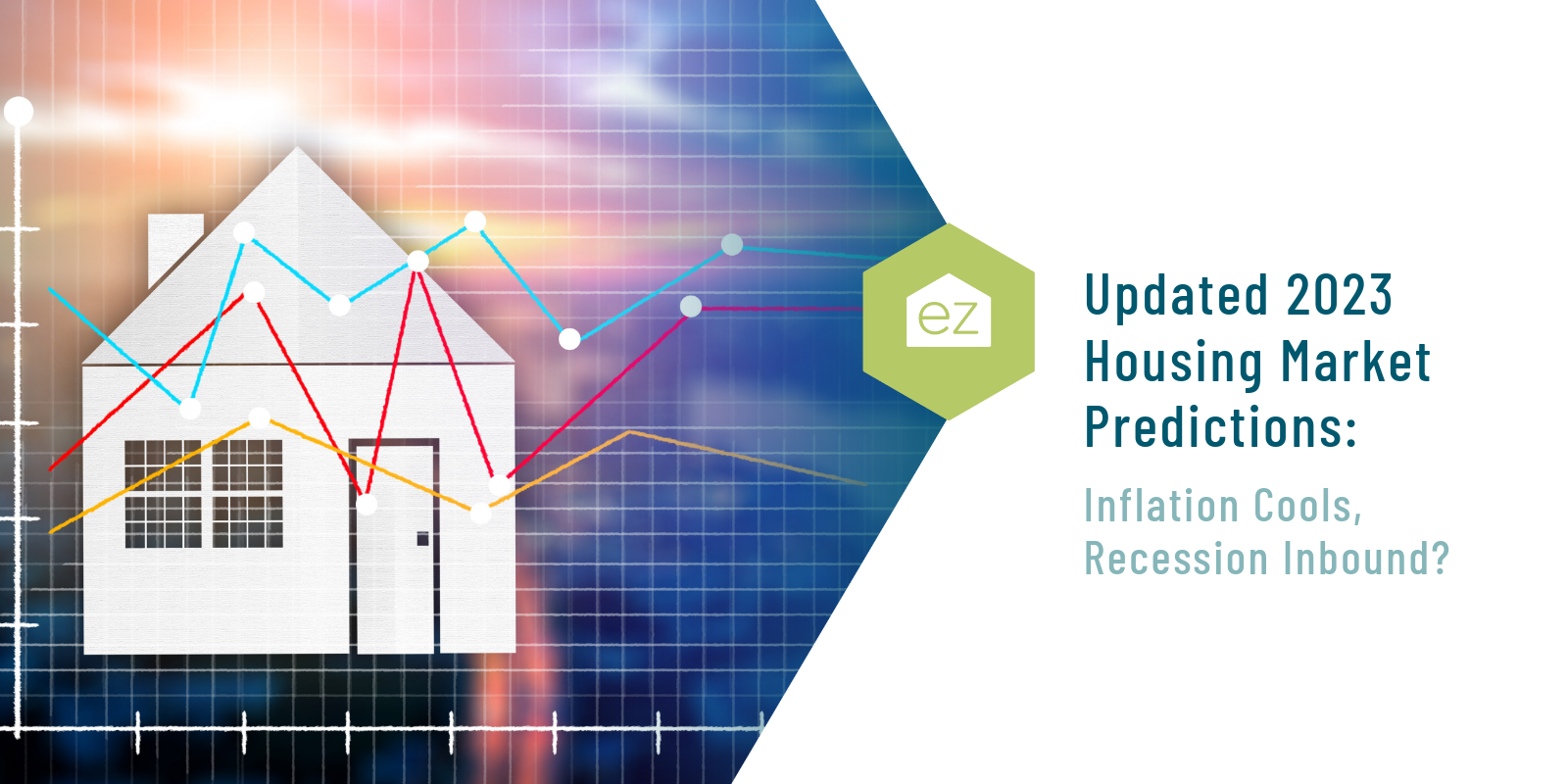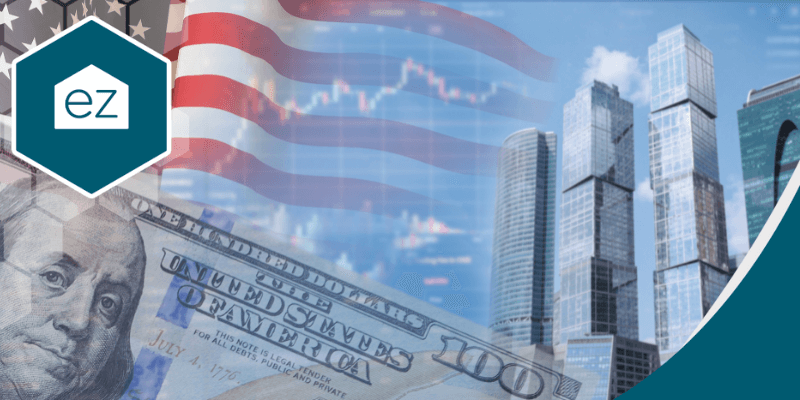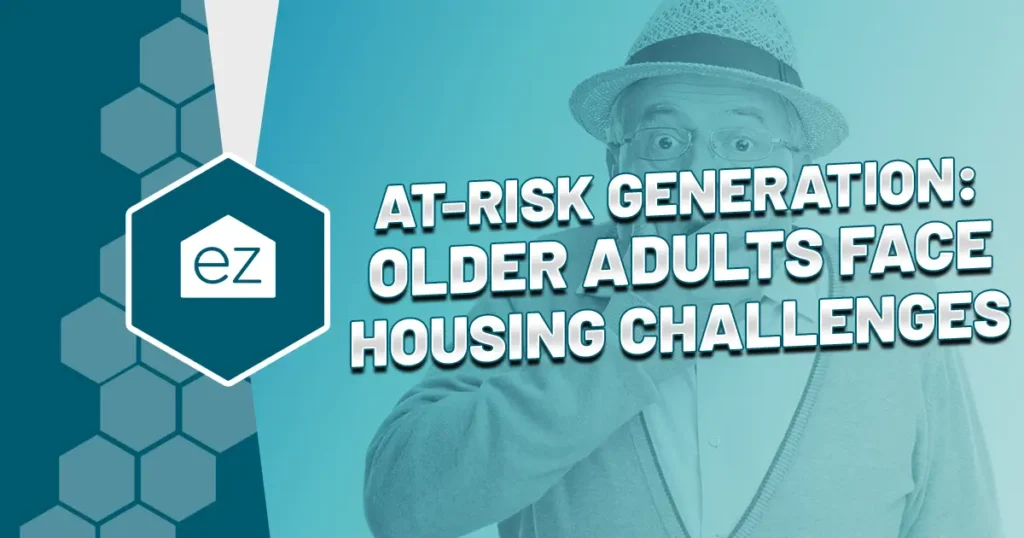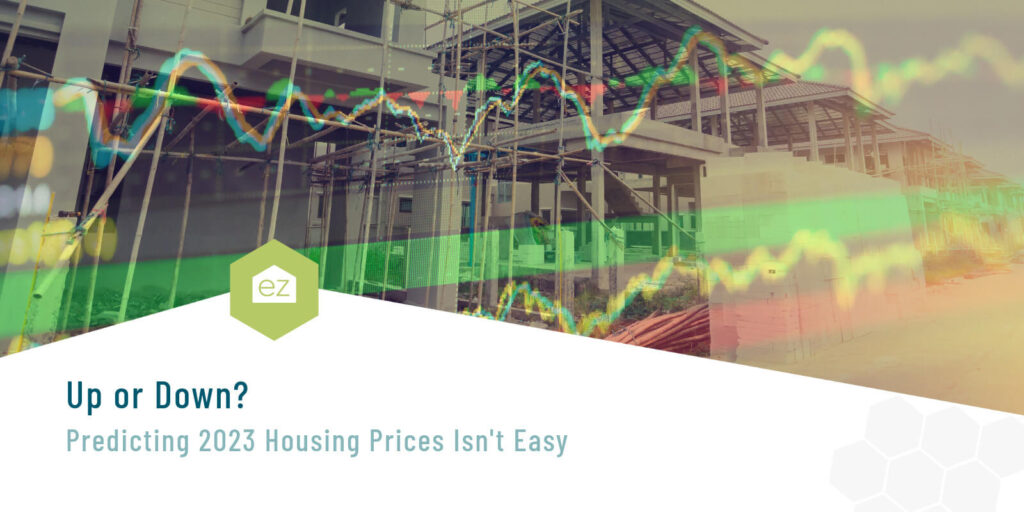Updated 2023 Housing Market Predictions: Inflation Cools, Recession Inbound?

Updated 2023 Housing Market Predictions: Inflation Cools, Recession Inbound?
Higher interest rates typically mean more expensive mortgages. But after a year of rampant inflation in 2022, the first half of 2023 suggested some inflation cooling off. The April CPI report showed that annualized inflation had slowed to 4.9%, slightly lower than estimates. Though inflation still ticked somewhat up for the month, the rate at which inflation increased was slow enough to give markets the sense that things were cooling down.
That means it’s time to update the 2023 housing market predictions. If the cooling trend in inflation continues, what does that mean for interest rates and housing prices throughout 2023?
Which 2023 Housing Market Scenario is Playing Out?
As Bankrate noted in early May, Nadia Evangelou, senior economist and director of real estate research for the National Association of Realtors (NAR), has laid out three different potential rate scenarios in 2023. The outcomes depend on how the Federal Reserve responds to the inflation and Consumer Price Index (CPI) numbers to determine interest rate policy.

Scenario 1 is that inflation remains high, which would force the Federal Reserve to keep raising rates. However, the recent April CPI report suggests that inflation is continuing a downward trend reported since the beginning of 2023. Though a 4.9% increased CPI over a year is still above the ideal, it suggests that prices have come down far enough to justify the Federal Reserve to pause its hikes.
Evangelou would see mortgage rates climbing up to 8.5% in this scenario.
Scenario 2 shows the CPI is responding to the rate hikes the Fed has pursued over the past year or so. April’s CPI numbers suggest that the hikes are having the intended effect on the economy, which means this scenario looks more likely than ever.
According to Evangelou, this scenario could cause a stabilization of mortgage rates in the 7% range for the rest of 2023.
Scenario 3 would suggest that the Fed’s rate hikes are causing a recession, which means that rates could be headed back down further than Scenario 2 would suggest. Evangelou sees the recession scenario as potentially requiring rate decreases, which could drop mortgage rates as low as 5%.
Though Scenario 3 is still on the table, the CPI numbers suggest that Scenario 2 is what is most likely playing out. This means that mortgage rates may not rise as high as some feared.
Mortgage Rates and Fed Hikes: Not Always a Perfect Correlation
The scenarios above suggest a direct correlation between mortgage rates and Federal Reserve interest rate hikes, but it’s not always a 1:1 relationship. Some other recent news suggests there’s more flexibility in the housing market.
After the Federal Reserve raised interest rates by 0.25% in their spring meeting, they signaled a potential pause in interest rate hikes for the time being. That’s likely a response to how the CPI numbers show inflation is cooling, though still not down to the levels where the market would regard them as stable.
On the heels of this optimism, mortgage rates ticked slightly downward. National Mortgage News noted that the 30-year fixed rate loan (measured by Freddie Mac’s Primary Mortgage Market Survey) dropped to 6.39% from 6.43% in late April. Though that’s still higher than the 5.27% at the same point the previous year, the fact that the Federal Reserve raised interest rates slightly but mortgage rates dipped suggests consumer and lender confidence is up. And there’s still plenty of room for mortgage rates to fall.
In Evangelou’s “Scenario 2,” mortgage rates could stabilize to around 7% once the Federal Reserve rates stabilize, too. There’s potential that the rest of 2023 could see mortgage rates as low as 6%. That number could be even lower if there’s more economic damage due to a recession or a near-recession.
What About Supply and Demand in the Housing Market?

Interest rates strongly influence what happens in the housing market—but they’re not the only signal about where housing may go for the remainder of 2023. Supply and demand will always have a major say. And for that, Housing Wire sees a housing market full of contradictions.
The paradox? The higher mortgage rates mean buyers have reduced purchasing power, which can stifle demand. After all, if home buyers can’t buy as much of a house as they’d like, there will be a cap on who enters the market, which means there’s less upward pressure on prices.
But while Housing Wire sees how this decreased demand is pushing some local housing markets lower, low inventory’s another element to consider. The higher mortgage rates have owners with low fixed-rate mortgages staying put if they don’t have to move. This restricts the housing supply, which puts upward pressure on prices. That’s why Housing Wire still sees homes in some markets selling fast and sometimes with multiple offers.
Housing Wire suggests that this could set up some aspiring home buyers for disappointment. The recent CPI news and Federal Reserve’s hints at pausing interest rate hikes suggest that inflation will be less of a problem. It hints mortgage rates may stabilize and decline throughout 2023. Home buyers might expect this to ease affordability concerns and loosen up the supply.
However, home buyers may be disappointed because there’s enough competition to keep home prices high. After all, with lower interest rates, it’s easier for more people to secure mortgages. The bottom line? Though there’s some reason for optimism, the updated housing market predictions for 2023 suggest that the market stays similar to conditions in early 2023.




